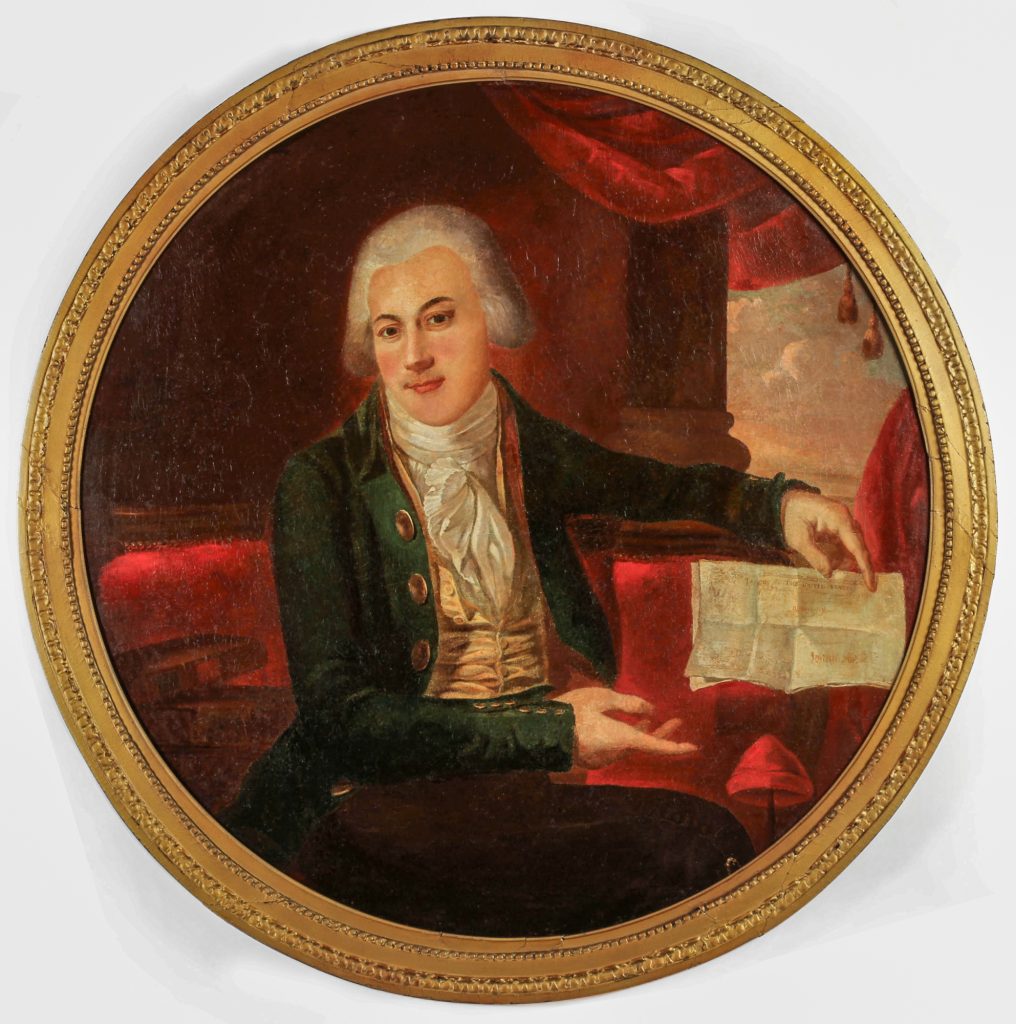The son of Abraham and Rachel Nones, Benjamin Nones was born in Bordeaux, France in 1757. “When the hostile armies of Great Britain invaded the United States to lay waste the fair rights of Freemen,” Nones would write years later to Thomas Jefferson, recounting his journey to America, “I abandoned the place of my Nativity and arrived in Charleston, South Carolina in the Year 1776 and in the presence of the Legislature of that State took the Oath of Allegiance to that State and to the United States.” While not strictly speaking accurate—Nones had arrived in Philadelphia as early 1772—the spirit, if not the details, of his memory holds. Nones proved himself devoted to the American cause and put himself at great danger to see it through.
In Charleston he volunteered for the Militia of South Carolina under the Orders of General Benjamin Lincoln and subsequently volunteered for the cavalry legion founded and led by Count Casimir Pulaski when they arrived in Charleston in 1779. Nones fought with the Pulaski Legion in the Carolinas and in the Battle of Savannah under Captain Verdier, who said of Nones, “his behavior under fire in all the bloody actions we fought, have been marked by the bravery and courage which a military man is expected to show for the liberties of his country.” He was commissioned major, and served on the staffs of Washington, Lafayette, and De Kalb. Captured by the British at the Battle of Charleston in early 1780, Nones remained a prisoner of war until the surrender of Lord Cornwallis on October 19, 1781, when he was released through a prisoner exchange.
His portrait shows Nones holding a document dated 1793 from the Treasury of the United States issued to him and signed by Joseph Nourse, Register of the Treasury.
Nones moved to Philadelphia and was included on a 1781 listing of the members of the Sublime Lodge of Perfection. He became active with Philadelphia’s Jewish community and married Miriam Marks on May 2, 1782. Over the course of their marriage, the couple had a total of thirteen children, nine of whom survived.
Nones earned a meager living as a dry goods merchant, notary public, and sworn interpreter of foreign languages for the Commonwealth of Pennsylvania. But he scraped together enough to purchase a home in the city along with a tract of land called Bayonne in Westmoreland County, Pennsylvania.
Nones was an active member of Philadelphia’s Mikveh Israel Congregation, serving as parnas for a total of 13 years over four different terms. He also served as an officer of the Society of Ezrath Orchim, the first organized Jewish charity in Philadelphia, and in an anti-slavery society. In fact, Nones was among the first to manumit slaves in Pennsylvania.
He became increasingly engaged in public life and a vocal Jeffersonian republican. Around this time, Philadelphia’s leading Federalist newspaper reported on a July 30, 1800 meeting of the Democratic Society of Philadelphia attended by the “very refuse and filth of society,” and Nones was singled out as “Citizen N— the Jew.” Mocked for his accent and disparaged as a Jew, a republican, and for being poor. Nones published an eloquent rebuttal in the Aurora, the city’s leading anti-Federalist paper, one of the earliest attempts to link the fate of the Jews with America’s destiny. It is worth quoting here at length:
I am accused of being a Jew of being a Republican, and of being Poor. I am a Jew. I glory in belonging to that persuasion, which even its opponents, whether Christian, or Mahomedan, allow to be of divine origin—of that persuasion on which Christianity itself was originally founded, and must ultimately rest—which has preserved its faith secure and undefiled, for near three thousand years, whose votaries have never murdered each other in religious wars, or cherished the theological hatred so general, so inextinguishable among those who revile them….
I am a Republican! Thank God, I have not been so heedless and so ignorant of what has passed, and is now passing in the political world. I have not been so proud or so prejudiced as to renounce the cause for which I have fought, as an American throughout the whole of the revolutionary war….
I am a Jew, and if for no other reason, for that reason am I a republican. Among the pious priesthood of church establishments, we are compassionately ranked with Turks, Infidels and Heretics. In the monarchies of Europe we are hunted from society, stigmatized as unworthy of common civility… In republics we have rights, in monarchies we live but to experience wrongs…. How then can a Jew but be a Republican? in America particularly. Unfeeling and ungrateful would he be if he were callous to the glorious and benevolent cause of the difference between his situation in this land of freedom and among the proud and privileged law-givers of Europe.
But I am poor, I am so, my family also is large, but soberly and decently brought up. They have not been taught to revile a Christian because his religion is not so old as theirs….”
Nones’ passion for politics and sense of service to his country passed on to his children: Solomon served as consul-general to Portugal, Abraham, as consul-general in Zulia, Venezuela, Joseph served in the Navy during the Second Barbary War, while Henry achieved the rank of captain in the Revenue Cutter Service, the forerunner to the Coast Guard. His daughter Hetty married Solomon Jacobs, mayor of Richmond Virginia.
